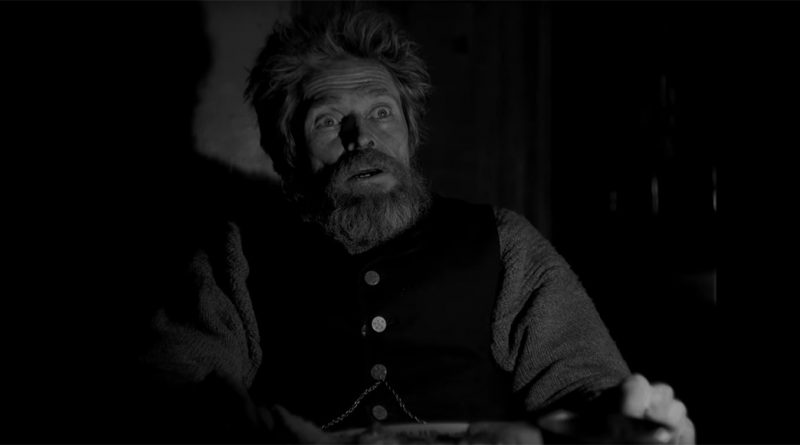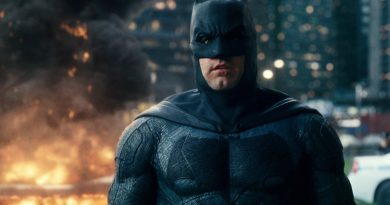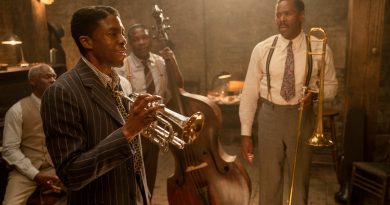‘The Lighthouse’ Review
Given how much I liked Robert Eggers’ feature debut, The Witch, I was extremely hyped for his follow-up, The Lighthouse. It did not disappoint. I was expecting the movie of the year, and this might very well be it.
The Lighthouse follows a lighthouse keeper (Willem Dafoe) and his assistant (Robert Pattinson) as they are forced to make the best of a bad situation, working to maintain the station as they both slowly go insane. The film is a technical and stylistic wonder. The black and white camerawork is suggestive of silent films and classical Hollywood, with smooth movements, invisible editing, expressionistic angles, and hardly any handheld shots. The lighting and set design are perfect, making every shot look like a painting with dynamic lighting that ranges from blinding whites to impenetrable blacks.
As writers, Eggers and his brother Max tell an enthralling story using a sparse toolkit. Much of the action is delivered through dense, poetic dialogue that ranks with some of the best film dialogue ever written. Just as The Witch was praised for its dialogue, the lines in The Lighthouse have a similar literariness, but with a great deal more in the way of extended speeches and verbal pyrotechnics. A great deal of the praise for this film has been directed toward the performances, and for good reason. Willem Dafoe is a clear best actor candidate as the older seaman, whose strange habits and schizophrenic temperamental shifts are played to perfection. Dafoe spews some of the most dense and complicated dialogue I have ever seen in a movie and does so with expert skill and conviction, transforming it into pure profane poetry. Similarly, Pattinson delivers an excellent performance as well. His character is more modern, sporting a turn-of-the-century North Eastern accent and dialect, rougher yet more grounded than Dafoe, forever the underdog slaving away beneath the master’s imposing boot.
This film is hard to market as it is essentially a surrealist work, a “dream-movie” so to speak, with bits of horror, comedy, and classical drama all woven together into something rich and strange. One could see the possible influences of the German Expressionists, Bergman, Lynch, even Panos Cosmatos, but at the end of the day this is truly a Robert Eggers film, a rare and truly unique work of art. It creates a foreboding atmosphere of confusion and paranoia with expert skill. The interior of the lighthouse station is never shot the same way twice, making it hard to tell what’s what or what the layout is. The characters seem entirely out of time. Pattinson seems like a person from the late 1800s, but Dafoe is so old-fashioned, he seems almost more mythical than real. They talk in circles, right past each other, never seeming to understand or agree on anything.
And the ending. What an ending. It’s a moment that can only be done in film. A manifestation of the great possibilities that make the artform unique and truly special. It’s probably the best single moment in any film this year.
The sheer amount of information, delivered explicitly but also through allusion and implication, may be too much to parse. What is the mermaid doing? What’s in the light? Which of Dafoe’s many stories are true? Is Dafoe a liar or is he insane? Is Pattinson a liar or is he insane? This is all fodder for endless speculation as to what is happening and what it all means or represents. As David Robert Mitchell said, “When you’re in the nightmare, there’s no solving it.”
The Lighthouse really is something else, and it deserves to be seen by everyone.




